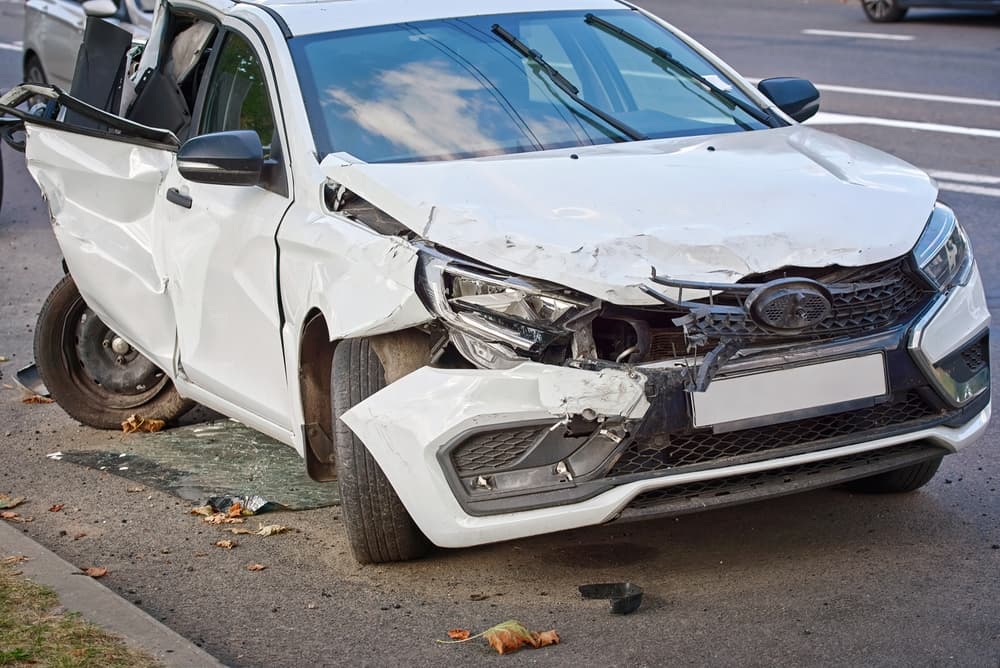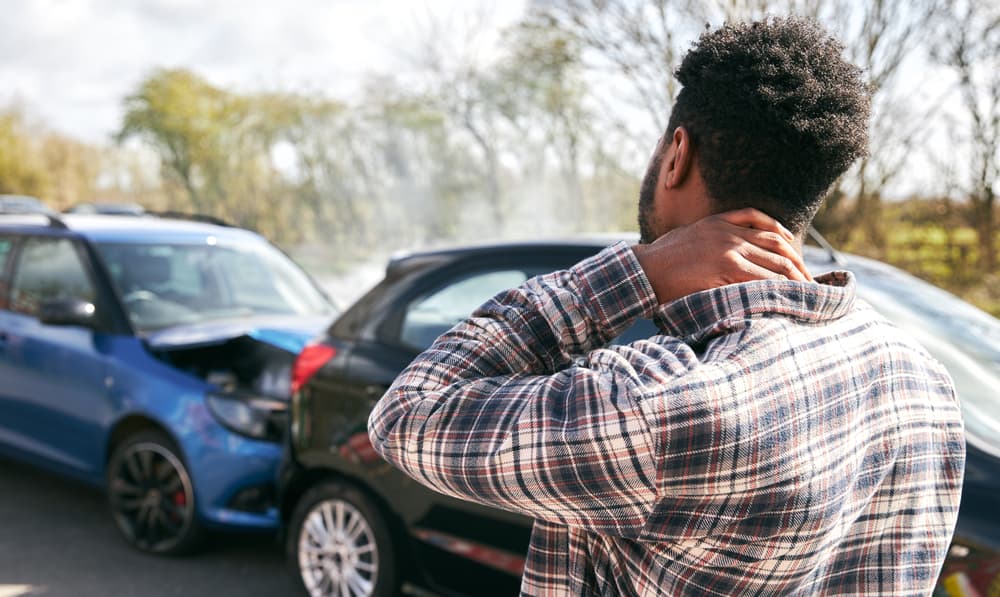After a car accident, one of the first and most stressful questions people ask is, “Who’s going to pay my medical bills?” The answer mainly depends on liability, the applicable insurance policies, and the laws in your state. In some cases, your own insurance may step in first, while in others, the at-fault driver’s insurer may ultimately be responsible. Sometimes, multiple sources contribute toward covering your medical bills.
Because medical expenses from a crash can quickly pile into tens or hundreds of thousands of dollars, it is important to know your payment options. A car accident lawyer working on your claim will explain and explore diverse sources of payments to ensure your injuries are fully addressed.
Key Takeaways
- After a car accident, medical bills may be paid by your health insurance, PIP/MedPay coverage, the at-fault driver’s liability insurance, UM/UIM coverage, or government programs like Medicare and Medicaid.
- Health insurance and PIP/MedPay provide the fastest payment, while liability and UM/UIM coverage typically reimburse after settlement.
- Engage a lawyer who can coordinate these sources, negotiate lien reductions, and protect your rights during the claims process.
Options for Medical Bills Payment After a Car Accident
 After a car accident, it’s important to know that there are several options available to help cover medical costs. This means you can obtain necessary medical care without facing overwhelming financial burdens. However, always consult with a car accident attorney to understand the best course of action for your specific situation. Here are the options to consider:
After a car accident, it’s important to know that there are several options available to help cover medical costs. This means you can obtain necessary medical care without facing overwhelming financial burdens. However, always consult with a car accident attorney to understand the best course of action for your specific situation. Here are the options to consider:
Your Health Insurance
In most cases, your own health insurance is the quickest way to get treatment paid while fault is being sorted out. You’ll still owe your usual deductibles, copays, and any out-of-network charges, but your doctors get paid promptly, and you avoid collections while claims are pending. Use your insurance card at every appointment and ask providers to bill your plan, not to wait for the settlement.
Be aware that many health plans have subrogation or reimbursement rights. Subrogation means if you later receive money from an at-fault driver or another insurer for the same medical bills, your health plan may ask to be repaid. Keep all Explanation of Benefits (EOBs) and receipts so your lawyer can negotiate these paybacks and prevent double-billing.
Personal Injury Protection (PIP)
If you live in a no-fault state or added personal injury protection to your auto policy, PIP pays your resulting medical bills regardless of who caused the crash. It often covers a portion of lost earnings and essential services (like housekeeping if you suffered an injury), up to the policy limit. Because fault doesn’t matter, PIP can start paying quickly and reduce your out-of-pocket costs early.
Medical Payments Coverage (MedPay)
MedPay is an extra feature you can add to your car insurance that helps pay for healthcare expenses for you and your passengers after an accident, no matter who caused it. Limits are usually smaller than PIP, but MedPay is flexible and can cover copays, deductibles, and out-of-network bills that health insurance won’t fully pay.
Because MedPay pays quickly and without a fault investigation, it’s useful for immediate needs like ER visits, imaging, and follow-ups. Some MedPay policies reserve the right to reimbursement if you later recover from an at-fault driver. Your car accident lawyer can help assess whether your MedPay is “excess” (secondary to health insurance) or “primary,” and whether it asserts reimbursement.
At-Fault Driver’s Bodily Injury Liability Insurance
 If another driver caused the crash, their liability insurer is ultimately responsible for your medical losses. However, BI claims do not pay bills as they come in, but they usually pay once, at the end, as part of a settlement or judgment. You’ll still need a way to handle bills in the meantime, usually PIP/MedPay/health insurance.
If another driver caused the crash, their liability insurer is ultimately responsible for your medical losses. However, BI claims do not pay bills as they come in, but they usually pay once, at the end, as part of a settlement or judgment. You’ll still need a way to handle bills in the meantime, usually PIP/MedPay/health insurance.
Two practical limits apply: policy limits and disputes about causation/necessity. If your medical costs exceed the at-fault driver’s limits, or the insurer argues some treatment wasn’t related or “reasonable,” you may need to tap other coverages or pursue the driver personally. Solid documentation from your doctors is key to full reimbursement.
Uninsured / Underinsured Motorist (UM/UIM) Coverage
If the at-fault driver has no insurance or too little to cover your losses, your own UM/UIM can step in. UM pays when the other driver is uninsured, and UIM fills the gap when their policy limits are too low. These claims are made with your insurer but are still adversarial, expect proof requirements similar to a liability claim.
UM/UIM often requires your consent before settling with the at-fault insurer, and some states allow stacking of limits across vehicles. Because rules are technical, involve your lawyer early. While UM/UIM won’t usually pay bills as they arrive, it can provide a key second source of recovery when liability limits run out.
Medicare, Medicaid, and VA Benefits
Government health programs will generally pay accident-related treatment if you’re eligible, but they have strict repayment and reporting rules. Medicare, for example, treats liability insurance as a primary payer and may make conditional payments that it expects to be reimbursed from your settlement. Medicaid and VA systems have their own lien processes.
If you’re covered by one of these programs, tell every provider it’s an accident case and keep meticulous records. Settlements must account for these liens, and failure to handle them correctly can delay your payout or create penalties. Your car accident attorney can verify amounts, dispute unrelated charges, and negotiate reductions where possible.
Talk to a Car Accident Lawyer About Your Medical Bills
 Figuring out who pays your medical bills after a car crash can be hard, especially when you’re dealing with pain, treatment schedules, and the stress of missing work. Timely legal guidance can help avoid shouldering costs you don’t owe. A car accident attorney can guide on choosing your options and help recover the full amount you deserve for treatment and other damages. Call your lawyer today to schedule a consultation.
Figuring out who pays your medical bills after a car crash can be hard, especially when you’re dealing with pain, treatment schedules, and the stress of missing work. Timely legal guidance can help avoid shouldering costs you don’t owe. A car accident attorney can guide on choosing your options and help recover the full amount you deserve for treatment and other damages. Call your lawyer today to schedule a consultation.
FAQs
Can I decide the doctor who will treat me after a car accident?
In most cases, you have the right to choose your own doctor. However, if you are filing through certain types of insurance, there may be network or referral requirements. Choosing a doctor who is experienced in documenting car accident injuries is important because their records will directly impact your claim’s strength.
Should I give my medical records to the other driver’s insurance company?
Not without speaking to a lawyer first. Insurance adjusters often request broad access to your medical history so they can search for pre-existing conditions to blame for your injuries. Instead, your lawyer can provide only the records directly related to the accident, protecting your privacy while still supporting your claim.
Will the insurance company pay for alternative treatments like chiropractic care or acupuncture?
It depends on your policy and the state you’re in. Some insurance policies cover complementary treatments if they are deemed medically necessary. This means that a healthcare provider must recommend the treatment as part of your recovery plan for injuries sustained in the accident. Others may refuse unless you can prove these treatments directly help your accident-related injuries. Your lawyer can help argue for these costs to be included in your settlement.
